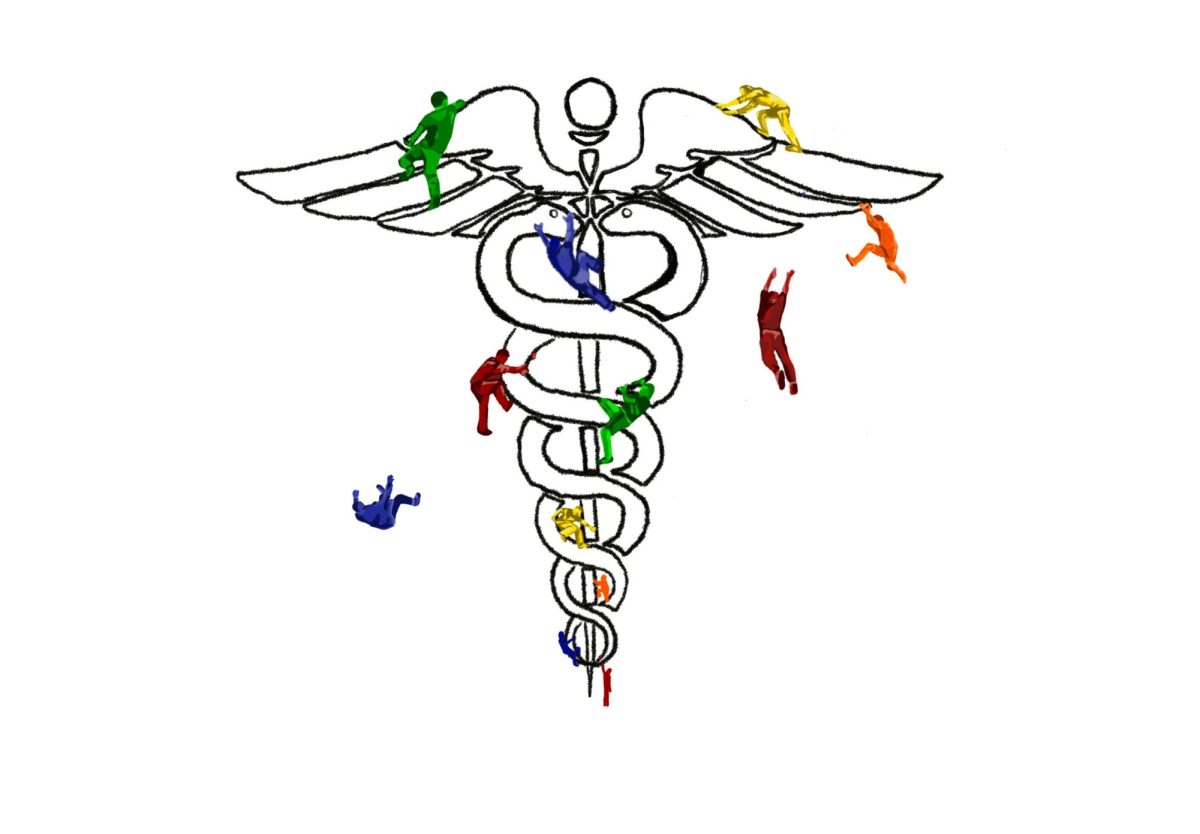I’m not sure whether the American Dream died or was reborn last week.
The popular narrative, of course, is that like a great democratic phoenix, the nation reemerged in star-spangled glory, that though our forefathers may have faltered at times, we have at last triumphed. We are the nation that we’ve all been singing songs about for so long, where anyone can do anything. In particular, one person can and will be one thing: Barack Obama will be president.
People are happy. Sure, only 65 million voters actually supported him, but that number doesn’t encompass Oprah or the three gajillion angsty 15-year-olds who can’t vote but can spam Digg in a happy delirium (again, and again, and again), or what The Economist cites as pretty much the entire world, give or take the Congo, Algeria, Cuba, and Iraq. It doesn’t matter that they were just campaign marketing pitches: Hope and change are nigh!
But all these patriotic revelers seem to have missed a single, deafening bell toll. Just a day before the election, DNA results confirmed the death of Steve Fossett.
Some background: Steve Fossett is described on Wikipedia as “an American businessman, sailor, aviator, and adventurer.” A self-made millionaire, he was known especially for breaking records. All in all, he set 116 records, including flying the longest nonstop aircraft flight ever, achieving the highest altitude of any glider ever, and sailing across the Atlantic Ocean significantly faster than anyone ever. It took him six tries, but he became the first—and only—person to circumnavigate the globe in a balloon on his own, financing the first five attempts himself. In short, the 63-year-old Fossett had a lot of money and a lot of ridiculous dreams. He spent his days throwing as much of his money at as many of his dreams as he possibly could, and he did a good job of it.
Just over a year ago, Fossett went missing. He was on a self-assigned mission to find a dry lake bed suitable for his impending quest to break the world land speed record, but his little plane never came back to the airstrip. Upon his disappearance, Google used “crowdsourcing,” opening up high-resolution satellite images of the area to the public and allowing users to flag spots as possible crash sites. More than 50,000 concerned Fossett fans—Fossettes, if you will—joined the efforts. The search proved futile, and nothing was heard until this September, when the wreckage of his plane was finally found. Test results issued on election eve confirmed that he perished in the crash.
Although in the intervening months there remained exceedingly little hope that Fossett had survived—his wife, Peggy, requested that he be formally declared dead in February—I and Fossettes everywhere hoped for the best. Deep down, we all remained confident that he might have pulled a D.B. Cooper and jetted off somewhere with a backpack full of cash, probably to live out the rest of his days in a tropical bungalow surrounded by models and aspiring actresses with names like Mandy and Coco. He had done too much, seen too much, and been too much—he was too fantastic to have simply died.
I can think of no clearer sign of the end of the way things were than the death of the nation’s foremost wealthy explorer. Steve Fossett was an adventurer in an adventured world, a record-setter among set records, a balloonist in an era more than a few decades past the balloon’s heyday. He was obscenely wealthy, a little overweight, chatty, and willing to throw his considerable material accumulations at the newest shiny thing. He was American.
In a way, Barack Obama and Steve Fossett represented different facets of the same American Dream. Fossett was the kind of American Dream that comes to Wall Street and strolls away a couple of years later with a few Italian cars and vacation homes; Obama is the stark truth that a qualified man can get to the highest office in the land riding on the back of his qualifications alone.
So maybe the American Dream didn’t die last week. Maybe now, instead of being about becoming wealthy commodities salesmen and then shoving millions of dollars at quests to circumnavigate things, it’s about setting records of a different sort. It could be that now that everyone’s retirement funds have shriveled and Iceland has collapsed and graduate schools are awaiting huge booms in applications as would-be students try their darnedest to stay out of the real world—it could be that now, we can try to set social benchmarks. Maybe it’s a shift in the American psyche. Or maybe we just know that we forgot our parachutes back at the airstrip.
Claire McNear is a second-year in the College majoring in international studies. She is a Maroon Viewpoints editor.








